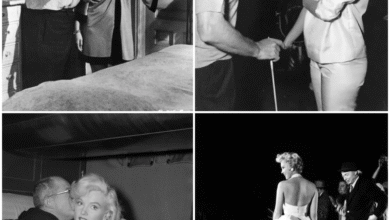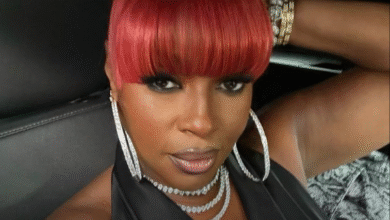The One Thing Denzel Washington’s Mother Did That Saved His Career Before It Even Began Before Denzel Washington’s acting career took off, his mother, Lennis “Lynne” Washington, made a pivotal decision that steered him away from a potentially troubled path. At the age of 14, after his parents’ divorce, Denzel began associating with the wrong crowd, a choice that led several of his friends into long prison sentences. Recognizing the danger, his mother enrolled him in the Oakland Military Academy in New Windsor, New York—a move he credits with changing his life . en.wikipedia.org +1 en.newsner.com +1 en.newsner.com This decision not only kept him out of trouble but also introduced him to the performing arts. At the academy, Denzel discovered his passion for acting, which eventually propelled him to a successful career in Hollywood. Reflecting on his youth, he often says, “Son, you never know who is praying for you,” highlighting the unseen support that guided him through challenging times . en.newsner.com In addition to this life-changing move, Lennis instilled in Denzel a strong sense of humility and faith. When he sought validation for his success, she reminded him of the collective prayers and sacrifices that contributed to his achievements. Her unwavering support and spiritual guidance were instrumental in shaping the man he became . preachingtoday.com +2 en.newsner.com +2 toofab.com +2 Denzel’s gratitude toward his mother is profound. In a heartfelt tribute, he shared, “I really admire Denzel Washington and his acting. He is a good man. I think he donated to the Boys club. His Mother did a good job raising him,” reflecting the lasting impact of her influence on his life and career
OPINION: This article may contain commentary which reflects the author's opinion.
The Equalizer film series has marked a rare moment in Denzel Washington’s career—the first time he’s reprised a character across multiple movies. Since the original 2014 film, audiences have followed Robert McCall’s journey from a solitary widower to a vigilante seeking justice. While talk of a fourth Equalizer movie is already underway, a closer look at the trilogy’s carefully crafted themes suggests that another installment might undermine the story’s satisfying conclusion.
A Trilogy Built Around Three Themes: Purpose, Peace, and Place
Screenwriter Richard Wenk, who penned all three Equalizer movies, has revealed in interviews that the films were mentally mapped out as a trilogy exploring three thematic chapters: purpose, peace, and place.
In the first film, McCall’s story is about rediscovering his purpose. Leading a quiet, uneventful life, he steps back into his old skills as a government operative to help those in need, embracing his vigilante identity as the Equalizer. The second movie delves deeper into his past, pushing McCall to make peace with the losses and scars he carries—especially the death of his wife and his estranged time in government service. This installment also introduces personal conflicts, like facing off against his former partner York (Pedro Pascal), adding emotional complexity.
The trilogy culminates in The Equalizer 3, where the theme of “place” takes center stage. McCall, wounded and weary, retreats to a peaceful Italian village. But before he can settle, he must protect this newfound community from a ruthless gangster. By the film’s end, McCall finds not only safety but belonging—a home and a family—completing his arc in a neat and emotionally resonant way.
Why Equalizer 3 Should Have Been the Finale
Given this carefully structured journey, Equalizer 3 was clearly intended as a conclusion. The film ties up McCall’s narrative, showing him finally at peace in a place where he belongs. For fans and critics alike, this final chapter felt earned and fitting.
However, despite this, Denzel Washington has reportedly signed on for two more Equalizer films. How the story will pull McCall back from retirement and undo the peaceful ending remains a mystery. Wenk himself has joked about the idea of a fourth movie titled Equalizer 4: Unfinished Business, hinting at past characters returning but admitting he’s not yet certain what that business would entail.
The Risks of Continuing the Franchise
The dilemma is reminiscent of other action franchises, like John Wick, where sequels risk diluting a character’s arc by undoing a natural conclusion. McCall’s story of purpose, peace, and place is complete—sending him back into the fray would need a powerful, fresh concept to avoid feeling forced or repetitive.
Wenk has expressed openness to returning, but only if a strong story justifies it. Given that the Equalizer series has generally favored action and atmosphere over complex plots, it’s possible that simply seeing Washington back in action could be enough to draw audiences, even without a deep narrative impetus.
Conclusion: Sometimes, It’s Best to Leave a Story at Home
While fans might welcome another dose of Robert McCall’s brand of justice, the trilogy’s thematic closure argues for letting the character rest. The Equalizer 3 provided a rare, satisfying ending—one that respected the character’s emotional journey and gave him a place to call home.
As the franchise considers another chapter, it faces the challenge of honoring that ending while offering something meaningful and new. Until then, perhaps the best course is to appreciate the trilogy as a complete and carefully crafted story that doesn’t need to be extended.



